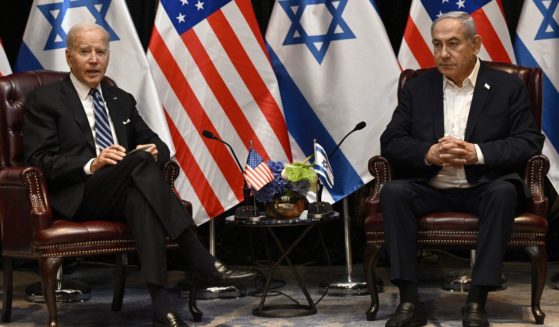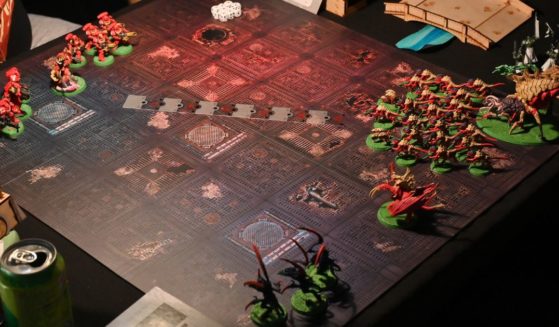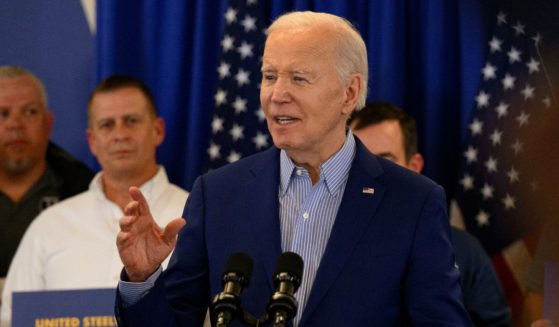Correction: Torture Lawsuit-Somalia story
ALEXANDRIA, Va. (AP) — In a story May 13 about a civil lawsuit alleging a former Somali colonel now living in Virginia engaged in torture, The Associated Press reported erroneously that the plaintiff’s lawyer, Ben Klein, works for the Center for Justice and Accountability. He works for DLA Piper, which partnered with CJA on the lawsuit.
A corrected version of the story is below:
Ex-Somali colonel faces civil trial in US alleging torture
A northern Virginia man who served decades ago as a colonel in the Somali Army is facing accusations in a federal courtroom that he tortured and killed those perceived as enemies of the government
By MATTHEW BARAKAT
Associated Press
ALEXANDRIA, Va. (AP) — A northern Virginia man who served decades ago as a colonel in the Somali Army is facing accusations in a federal courtroom that he tortured and killed those perceived as enemies of the government.
A civil jury in Alexandria heard opening statements and testimony Monday in a lawsuit against Yusuf Abdi Ali of Alexandria, who was known as “Tokeh” when he served under dictator Siad Barre.
The suit was brought by a Somali man who says he was shot by Ali during a 1988 interrogation and left for dead. He survived.
The lawsuit has been delayed for nearly 15 years, mostly by legal debate over whether a Somali national could bring suit in the U.S. over alleged torture overseas.
In opening statements, lawyer Ben Klein with DLA Piper said his client, Farhan Mohamoud Tani Warfaa, lived in northwest Somalia and is a member of the Isaaq clan, which was singled out for persecution under Barre.
Klein said Ali was commanding the Army’s 5th Brigade in that region when he rounded up multiple young men from Warfaa’s town in December 1987 for interrogation over a missing water-tanker truck.
Warfaa was jailed for several months and was regularly stripped naked and beaten, Klein said.
He was also hogtied in a stress position Klein said “was so excruciatingly painful, so unbearable, it would cause Farhan to go unconscious.”
Ali would personally supervise many of these sessions, Klein said.
In a final interrogation in early 1988, Klein said resistance fighters attacked Ali’s brigade in the middle of questioning. At that point, Klein said, Ali shot Warfaa multiple times while he lay on the ground, shackled.
Warfaa lost consciousness and was presumed dead, Klein said, so Ali ordered his underlings to bury Warfaa.
But, Klein said, the soldiers realized Warfaa was alive and solicited a bribe from his family to let him live.
Warfaa testified directly about his experience Monday to the jury. He said he was one of about 15 detainees who were taken from his village and kept in what amounted to a large shipping container on a military base. He was then just 17 years old, and singled out for a higher level of abuse because they thought his age made him more susceptible to shedding information, even though he knew nothing about the missing tanker that was the pretext for the interrogations.
He pointed to Ali several times in his testimony, and said he saw Ali personally dozens of times while he was under arrest. He said Ali did nothing to stop the abuse inflicted by soldiers.
“There was nothing we could do. There was no one to ask for help. There was no one to complain to,” Warfaa said through an interpreter.
Ali’s lawyer, Joseph Peter Drennan, said his client was a professional soldier who received training in the U.S.
Drennan told jurors he does not dispute that Warfaa suffered torture, but said it was not at the hands of Ali. The lawsuit is all about “clan vengeance,” Drennan said, and is orchestrated against Ali because he lives in Virginia and is vulnerable to a lawsuit under the federal Torture Victims Protection Act.
“There is a hidden agenda here,” Drennan said.
Ali is expected to testify in his own defense later in the trial.
The Center for Justice and Accountability, which helped file the lawsuit on Warfaa’s behalf, brought a similar lawsuit against Somalia’s former prime minister, Mohamed Ali Samantar, who also took up residence in northern Virginia. In that case, Samantar accepted a default judgment against him on the eve of trial and refused to contest the allegations against him in court, though he said outside court that he committed no wrongdoing. In 2012, a judge entered a $21 million judgment against Samantar, though he had already declared bankruptcy.
The Western Journal has not reviewed this Associated Press story prior to publication. Therefore, it may contain editorial bias or may in some other way not meet our normal editorial standards. It is provided to our readers as a service from The Western Journal.
Truth and Accuracy
We are committed to truth and accuracy in all of our journalism. Read our editorial standards.












